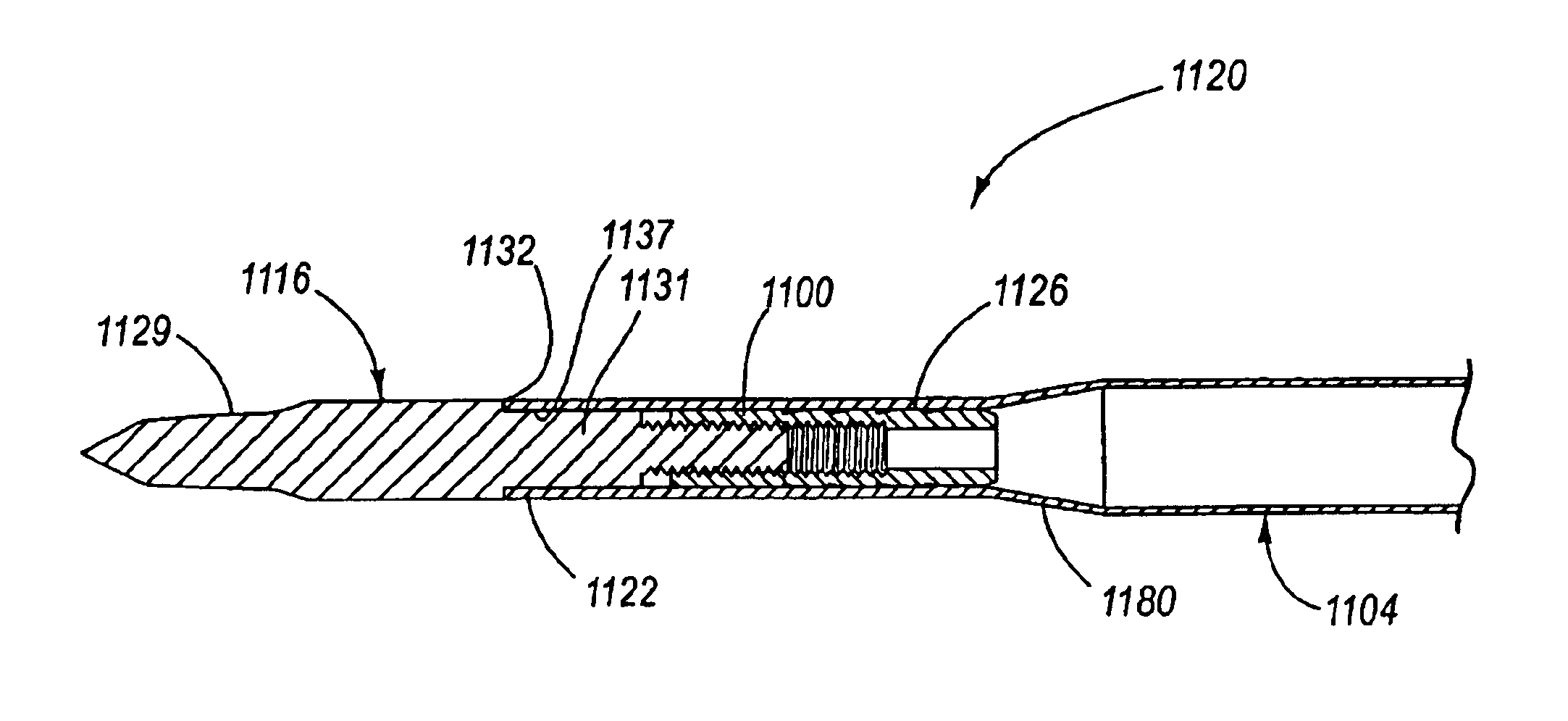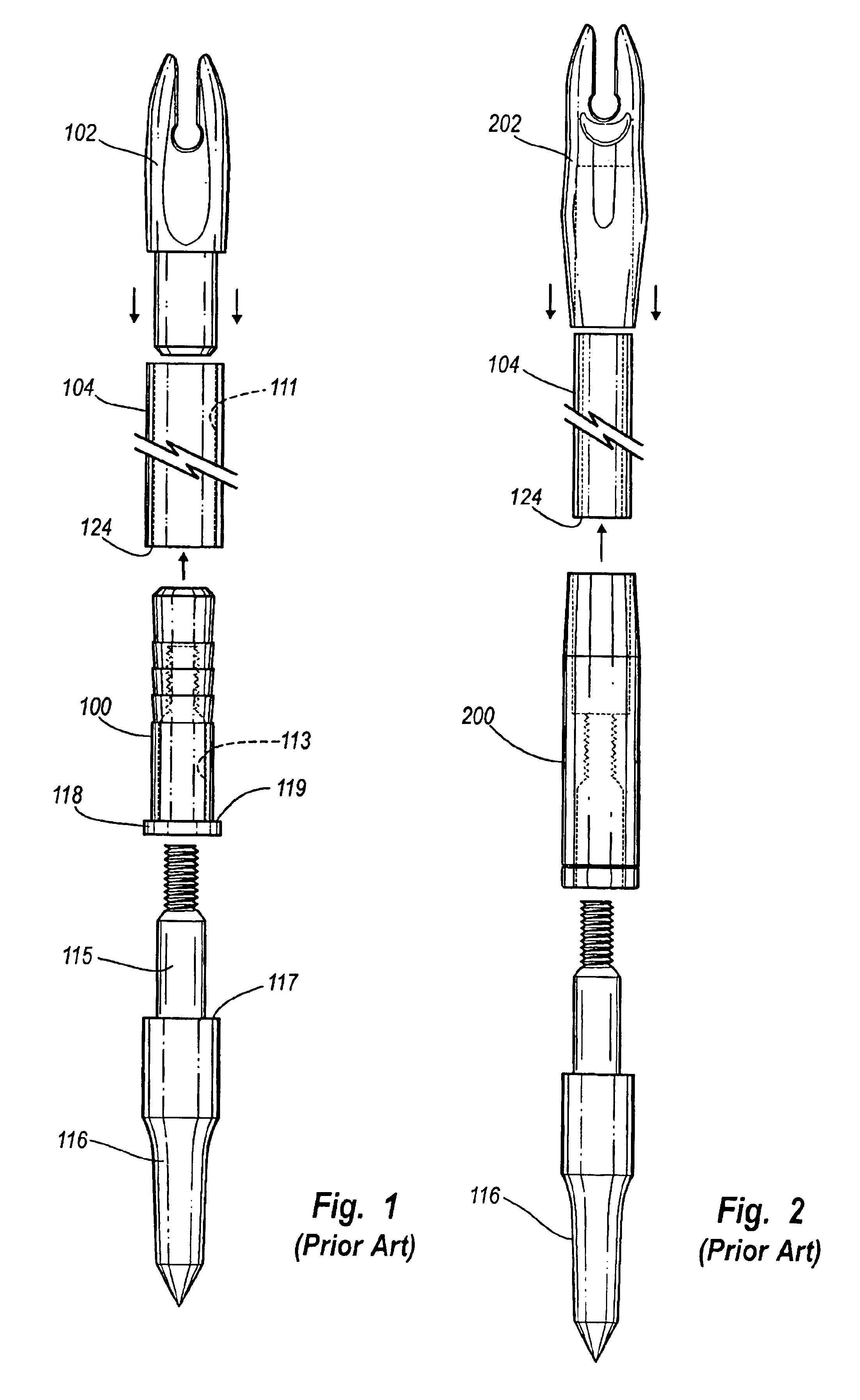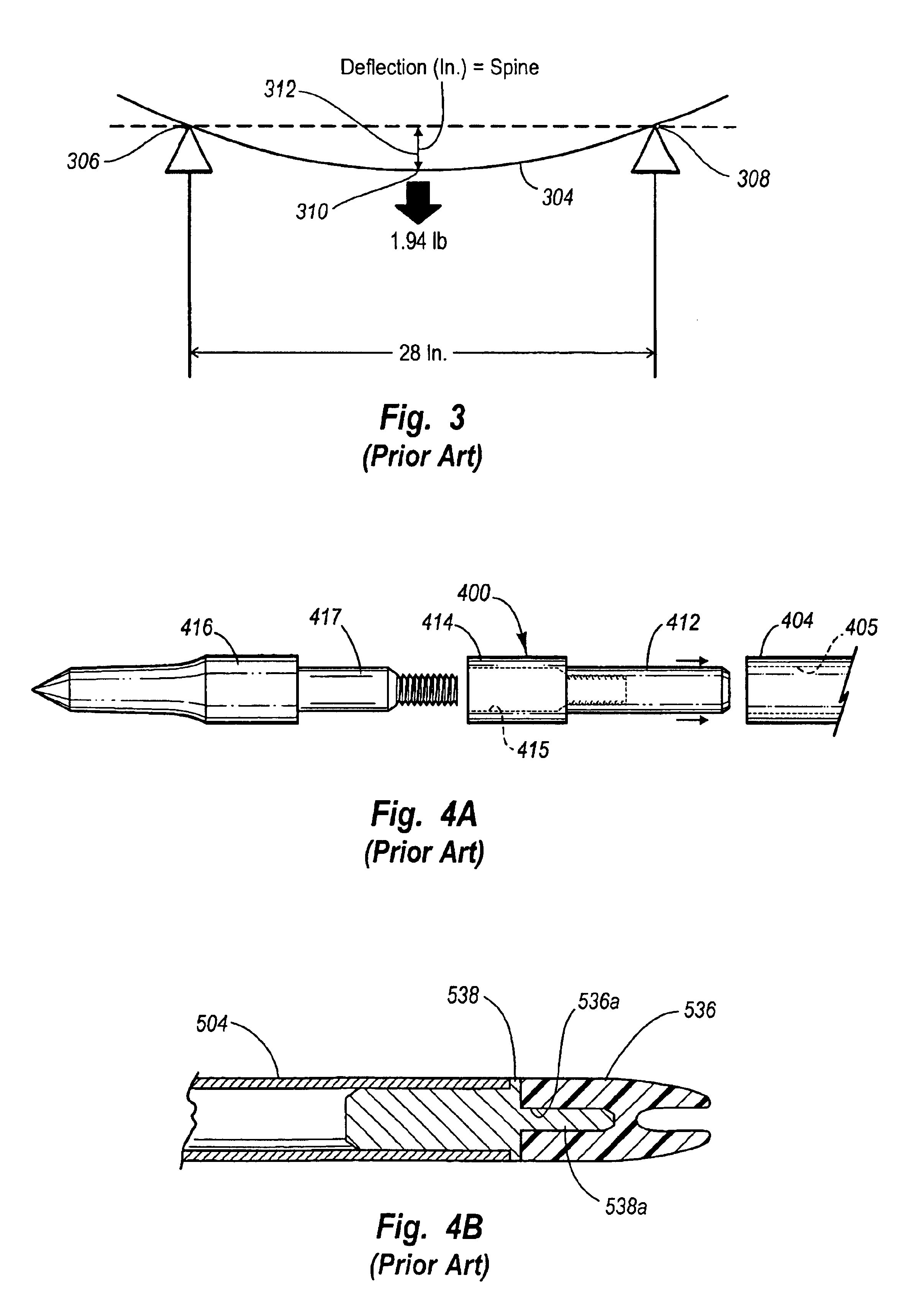Arrow system
a technology of arrow shafts and arrows, applied in the field of arrow systems, can solve the problems of low circumferential or hoop strength of arrow shafts, inability to withstand arrows, and inability to achieve hoop strength
- Summary
- Abstract
- Description
- Claims
- Application Information
AI Technical Summary
Benefits of technology
Problems solved by technology
Method used
Image
Examples
Embodiment Construction
[0066]The present specification describes a novel arrow system that may be used for archery, and particularly for bowhunting. One aspect of the novel arrow system relates to a reduced diameter hunting arrow. The reduction in diameter of a hunting arrow facilitates more accurate shooting and better penetration than previous arrows. The reduced diameter hunting arrow may be sized to accommodate standard arrow point assemblies, half-out arrow point assemblies, or smaller diameter arrow point assemblies. The reduced diameter hunting arrow may also be used to accommodate a new point insert system and a new arrow point assembly, both of which are further described below. The novel arrow system also involves an insert installation tool to facilitate placement of the novel insert into an arrow shaft and an arrow shaft preparation tool to ensure the shaft will properly accommodate a point.
[0067]Accordingly, the specification describes various aspects of the invention according to the followi...
PUM
 Login to View More
Login to View More Abstract
Description
Claims
Application Information
 Login to View More
Login to View More - R&D
- Intellectual Property
- Life Sciences
- Materials
- Tech Scout
- Unparalleled Data Quality
- Higher Quality Content
- 60% Fewer Hallucinations
Browse by: Latest US Patents, China's latest patents, Technical Efficacy Thesaurus, Application Domain, Technology Topic, Popular Technical Reports.
© 2025 PatSnap. All rights reserved.Legal|Privacy policy|Modern Slavery Act Transparency Statement|Sitemap|About US| Contact US: help@patsnap.com



